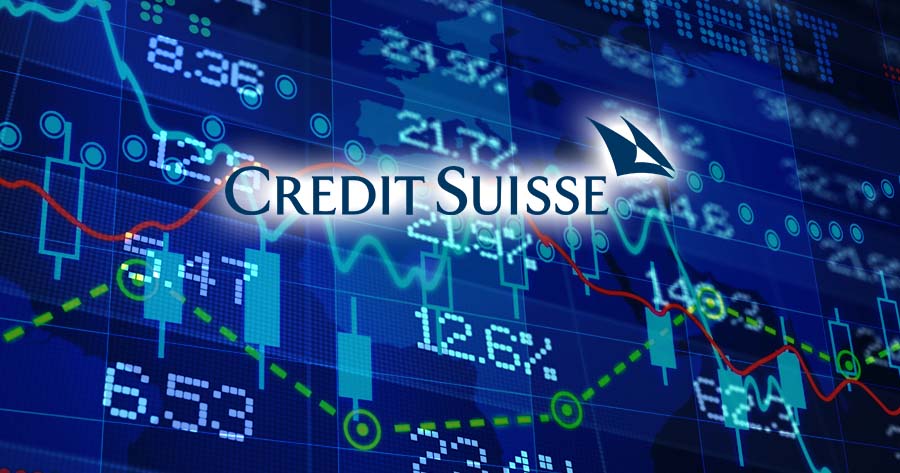Credit Suisse trimmed its Overweight rating in Thailand, saying that valuations are less appealing, stock picking has become more challenging and volatile 1H from the political cycle, while setting year-end SET Index target at 1,870.
Credit Suisse stated that Thai tourism has a long runway before supernormal growth ends due to delayed reopenings. Currently, Asian tourism is at only about half the pre-Covid levels, whereas the US has normalized. Thailand’s macro and earnings outperformance should continue despite the global slowdown that is impacting exports as tourism recovery would lift domestic demand to stay resilient.
More importantly, the financial firm noted that Thailand’s core inflation is close to a flat line and that should give the Bank of Thailand a scenario to keep rate hikes limited.
The market is cutting earnings forecasts, but Credit Suisse pointed out that it is much less than the region as a while.
The bullish in Thai baht is a key factor for the Overweight rating and Credit Suisse said that it remained optimistic on the baht.
As for politics, the Swiss bank considered it as the main risk to outperformance in 2023 and also the main reason that the bank trimmed Thailand’s outlook as the upcoming elections will likely increase volatility in late 1Q and 2Q, while expecting that this will not have a lasting impact. According to historic data, Thailand has underperformed in the three months before the past five elections before making up the losses in the following three months.
Despite trimming the outlook, the Swiss bank believed pockets of value remain as it preferred bank and consumer stocks for tourism-led recovery. Meanwhile, the bank noted that it had smaller positions in tourism and healthcare stocks due to being more expensive.
Credit Suisse expected positive earnings momentum to continue in 2023 for the banks, underpinned by NIM expansion and manageable credit cost, while digital transformation should also keep opex under control.
Thai banks’ NIM is expected to maintain an uptrend as they should be able to pass on rising cost to borrowers, and the policy rate could keep on rising, potentially 50-75bp higher from the current level.
The firm chose Bangkok Bank Pcl (SET: BBL) and SCB X Pcl (SET: SCB) as top performers among Thai banks. NIM expansion is expected to continue for BBL and see room for consensus to upgrade its earnings. BBL also has advantage on asset quality given its high exposure to corporate clients which are less vulnerable to macro uncertainties.
Meanwhile, Credit Suisse expected SCB’s NIM to improve, not only driven by rising interest rate trends in Thailand but also its ability to shift loan mix into higher yield segments, particularly via its generation 2 businesses, including CardX, AutoX, and digital lenders’ subsidiaries. Moreover, due to SCB’s high exposure to the hospitality sector, Credit Suisse said that SCB is well positioned to benefit from tourism recovery as it likely helps improve the quality of its restructured loan book.
Credit Suisse set target price for BBL at THB160 and SCB at THB146 per share.
As for the consumer sector, the Swiss bank expected an uneven recovery among retailers this year. The performance of retailers has been encouraging so far but the firm believed those with higher tourism exposure and strong omnichannel platforms will likely see steeper improvements next year. According to Credit Suisse, most outstanding in the consumer sector are CPALL Pcl (SET: CPALL) with a target price at THB78 and Central Retail Corporation Pcl (SET: CRC) with a target price at THB53 as their 3Q22 SSSG improved further QoQ despite 3Q being a low season. Meanwhile, their sales perm2 also improved sequentially as they had high tourism exposure and strong omnichannel platforms.





